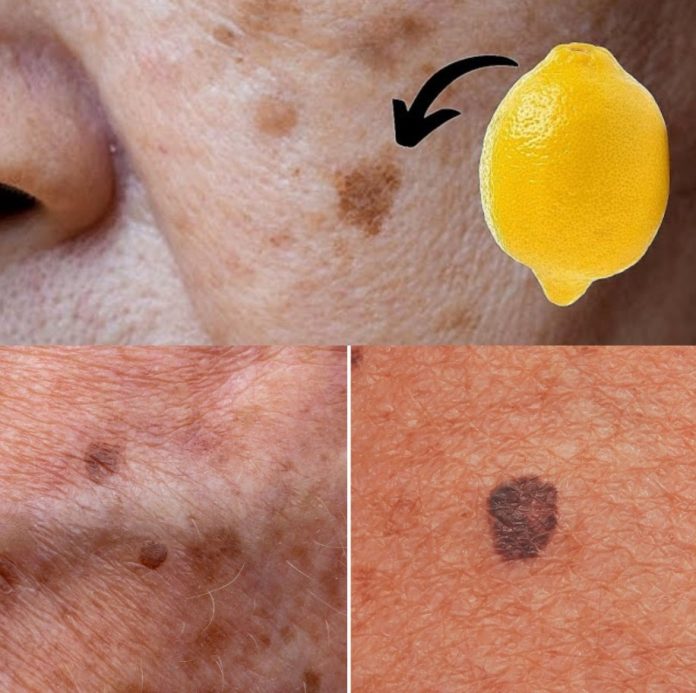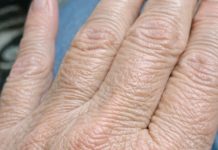Age spots, also known as liver spots or sun spots, are a common concern as we age. These darkened patches of skin can appear on areas frequently exposed to the sun, such as the face, hands, and arms. While they are typically harmless, many individuals seek ways to lighten or remove these spots for a more even complexion.
Among various natural remedies, lemon juice has become a popular choice due to its skin-brightening properties. Rich in vitamin C and citric acid, lemon juice is not only beneficial for internal health but also boasts impressive topical effects for fading hyperpigmentation. This article explores how you can use lemon to diminish age spots, with tips for safe and effective use.
Understanding How Lemon Works for Age Spots
Lemon is often regarded as a miracle worker when it comes to skin care. Its high concentration of vitamin C plays a significant role in promoting the skin’s natural repair processes, including the fading of dark spots. Vitamin C is known for its antioxidant properties, which can reduce the production of melanin—the pigment responsible for the formation of dark spots. The citric acid in lemon juice acts as a mild exfoliant, gently sloughing off dead skin cells and revealing fresher, more even-toned skin.
While lemon juice can be a great ally in treating age spots, it is important to use it correctly to avoid skin irritation. Below are two popular methods for using lemon juice to lighten age spots.
How to Use Lemon for Age Spots
Method 1: Direct Lemon Juice Application
The simplest way to incorporate lemon juice into your skincare routine for fading age spots is through direct application. Here’s how you can use this method effectively:
- Cleanse Your Skin: Begin by cleansing your skin with a gentle, mild cleanser. This will help remove dirt, oils, and makeup, ensuring the lemon juice can penetrate the skin effectively. Pat your face dry with a clean towel.
- Apply Fresh Lemon Juice: Squeeze fresh lemon juice into a small bowl. Using a cotton ball or Q-tip, dip it into the juice and gently apply it to the areas with age spots. Be careful to avoid the eye area, as lemon juice can be irritating to sensitive skin.
- Let It Sit: Allow the lemon juice to sit on your skin for about 10-15 minutes. If you start to feel any discomfort or excessive stinging, wash it off immediately. Always listen to your skin’s response.
- Rinse Thoroughly: Once the treatment time has passed, rinse the area with lukewarm water to remove the lemon juice completely. It’s important to remove the juice thoroughly to avoid prolonged exposure, which can lead to irritation.
- Moisturize and Protect: After drying your skin, apply a moisturizer to replenish any lost hydration. Lemon juice can dry out the skin, so moisturizing is essential. Additionally, always use sunscreen when going outdoors, as lemon juice can increase your skin’s sensitivity to the sun.
Method 2: Lemon and Honey Mask
For those with more sensitive skin or who want to enhance the hydrating effects of lemon, a lemon and honey mask is an excellent option. Honey is well-known for its soothing and moisturizing properties, which can help balance the drying effects of lemon juice. Here’s how to make and use this mask:
- Prepare the Mask: In a small bowl, combine equal parts of fresh lemon juice and organic honey. Honey is not only hydrating but also contains natural antibacterial properties that can promote skin healing.
- Apply the Mask: Use a clean brush or cotton ball to apply the mixture to the affected areas with age spots. Be gentle to avoid irritation, and ensure that the mask covers all the targeted spots evenly.
- Leave the Mask On: Let the mask sit for about 20 minutes. This allows both the lemon juice and honey to work their magic on your skin, helping to lighten dark spots and hydrate the skin simultaneously.
- Rinse and Dry: After the mask has had time to work, rinse your face with warm water and gently pat dry with a clean towel.
- Moisturize and Protect: As with the direct application method, follow up with a good moisturizer and apply sunscreen if you plan to be outside. The combination of lemon and honey helps balance the skin, but sun protection is always necessary.
Precautions When Using Lemon on Skin
While lemon juice can be highly effective in treating age spots, it is important to approach its use with caution. Here are some important precautions to keep in mind:
- Skin Sensitivity Test: Before applying lemon juice to your skin, always perform a patch test. Apply a small amount of lemon juice to a less sensitive area of your skin, such as your inner arm, and wait 24 hours to check for any signs of irritation or allergic reactions. If redness or a rash develops, discontinue use.
- Sun Exposure: Lemon juice can make your skin more sensitive to the sun, so it is crucial to use sunscreen when applying lemon to your skin. The sun can exacerbate the darkening of spots and cause further irritation, so applying a broad-spectrum sunscreen is essential after each treatment.
- Frequency of Use: Lemon juice is acidic, so it’s best to use it sparingly. Overuse can lead to skin irritation, dryness, or even peeling. Limit your lemon treatments to 2-3 times a week, depending on your skin’s tolerance.
- Avoid Eyes and Sensitive Areas: The skin around the eyes is much more sensitive than other areas of the face, so avoid applying lemon juice to this area. If you accidentally get some in your eyes, rinse immediately with water.
- Consultation with a Dermatologist: If you have severe or persistent age spots, or if you experience irritation from using lemon juice, consider consulting a dermatologist. They can offer professional advice and treatments that may be more effective or tailored to your skin’s needs.
Conclusion :
Using lemon juice to fade age spots is a simple, natural, and cost-effective solution that can help promote a clearer, more even complexion over time. Thanks to its vitamin C content and gentle exfoliating properties, lemon juice can help lighten dark spots, reduce discoloration, and brighten the skin. Whether you apply it directly or use it in combination with honey for extra hydration, lemon can be a powerful tool in your skincare routine.
However, it’s important to remember that while lemon can be beneficial, it’s not a one-size-fits-all remedy. The effectiveness will vary depending on your skin type, the severity of the age spots, and how consistently you use the treatments. Always take proper precautions, and be mindful of your skin’s needs to avoid irritation. For those seeking faster results or professional treatments, consulting with a dermatologist can provide personalized guidance.
With patience, consistency, and proper care, you can enjoy the natural skin-brightening benefits of lemon juice and work towards a more youthful, radiant complexion.










